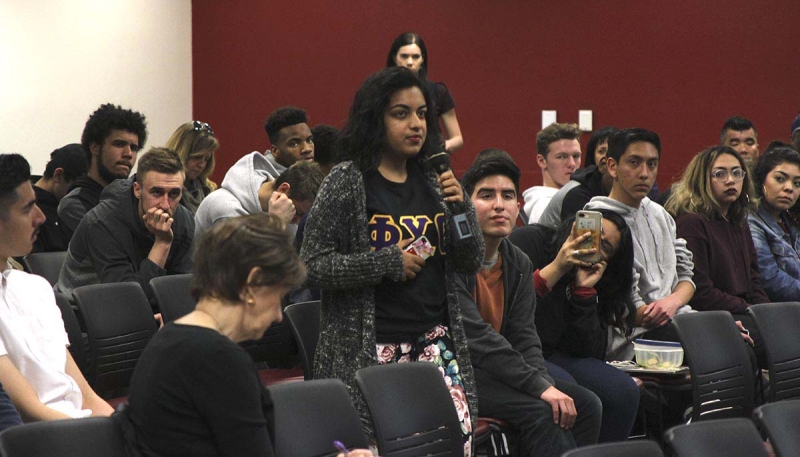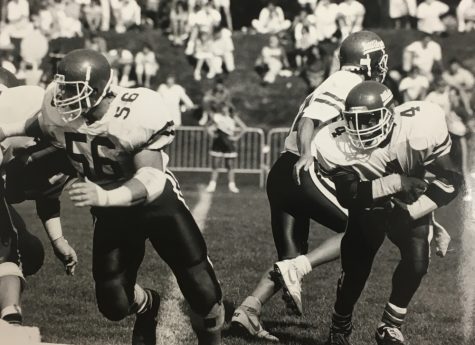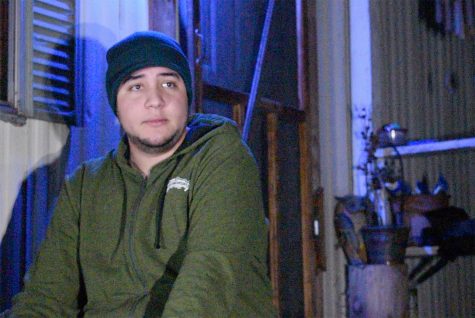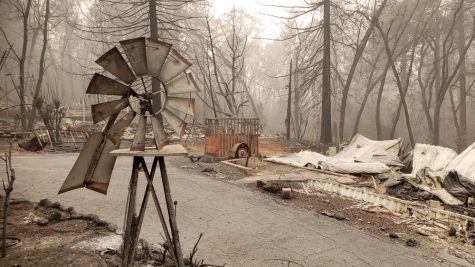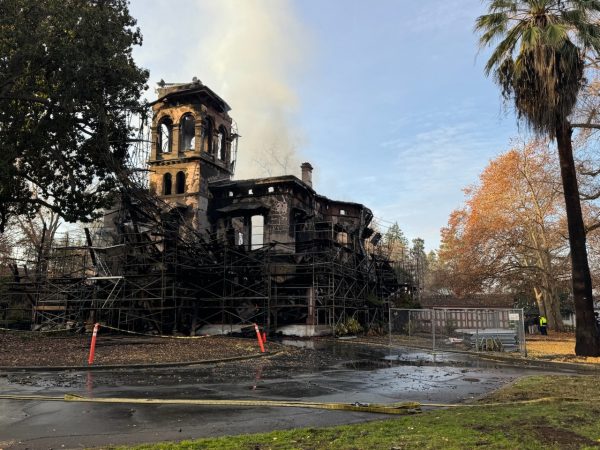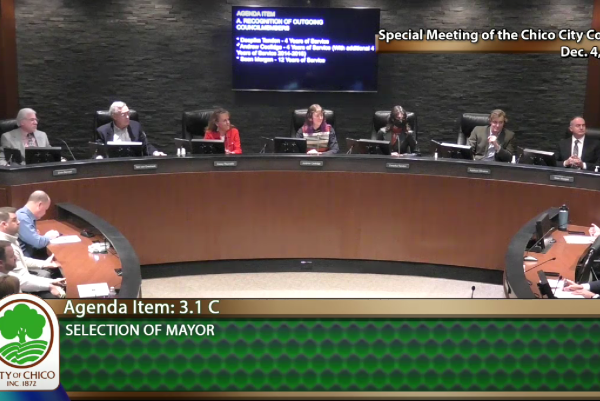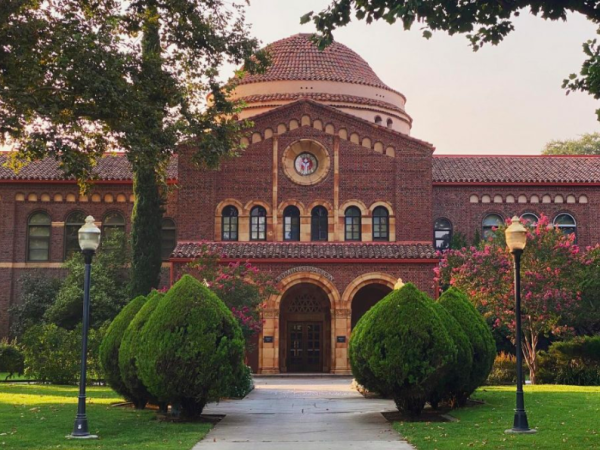Students share mixed emotions over proposed fee increases
Radhika Kataria, a member of Students for Quality Education, raises concerns over the proposed fee increases at an open forum held on March 6. Photo credit: Martin Chang
Chico State’s proposed fee increases have sparked an intense debate in the student body, manifesting itself most visibly in the open forums that took place during the first two weeks of March.
On Feb. 16, administrators sent an email to the student body announcing proposed fee increases to the Health Services Fee, Athletics Fee and Student Learning Fee, altogether totaling a $380 per year increase. These fees would then follow a gradual increase, eventually totaling $700 per year after a five-year period.
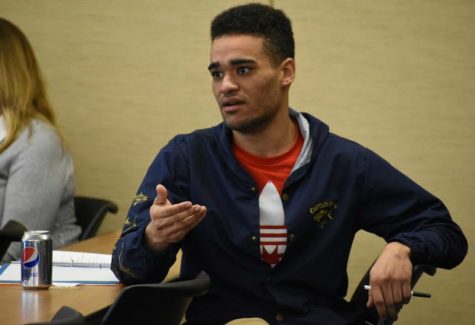
This has split the student body by igniting emotional pleas both for and against the potential increase. Certain groups such as student athletes and Students for Quality Education have maintained a more active presence in the forums. SQE members have attended every meeting to voice arguments strongly against fee increases.
Jamie Cabrera, an intern for the California Faculty Association at Chico State and one of the main organizers for SQE, worries about the impact that additional student fees would have on students that are already struggling with their finances.
“We know that half of the students in the school are only here because of financial aid,” Cabrera said. “That would mean that with an increased cost of fees and tuition we see that these students are even more unable to pay for their education, for their personal costs, for their rent and their bills and other things like that.”
Still, others believe the fees are necessary to keep basic services functioning at a high level for students. One such group is student athletes, who have maintained a large presence at the open forums. At the University Hub public forum on March 1, over half the students in attendance were Chico State athletes.
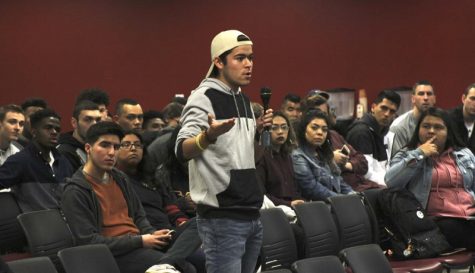
At the March 7 forum held in Colusa 100A, McKena Barker, senior basketball player, said that these proposed fees were vital to the Chico State experience.
“I think that a college experience is much more than just academics…I know the student learning fee provides vital learning opportunities for students to help with their future careers,” Barker said. “I know that this is a really hard conversation, but I think we’re at a time where it (increasing student fees) needs to happen and I think in order to be a successful student we need these fees.”
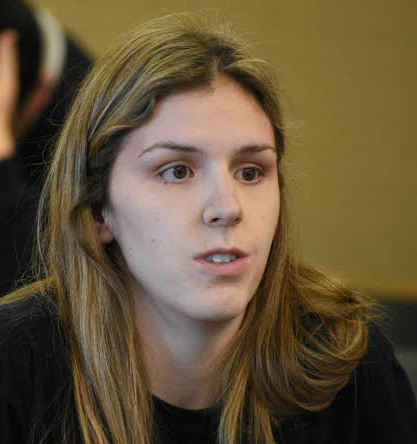
The discussions at the student forums have already sparked a significant change in the decision-making process. On March 5, President Gayle Hutchinson announced in an email sent to students that she decided to include an advisory student referendum vote in conjunction with the established alternative consultation process.
This will allow students to place an advisory vote on the fee increases sometime after mid-April. This date has yet to be announced but it will be after the Associated Student Election on April 18 in an effort to avoid these fees becoming a debating topic among candidates.
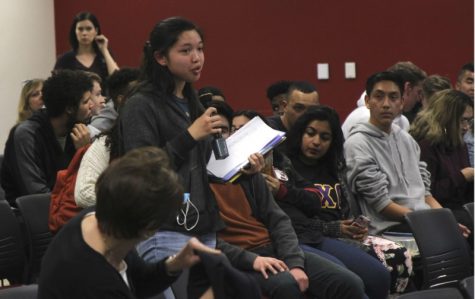
Of the many voices at the forums, one common element has been the emotional intensity of student’s voices. There have been tears shed over how the athletics program has changed lives and over fears of the ability to afford an education at Chico State if the fee increase passes.
One article couldn’t fit the vast amount of student voices at these forums, but below are a collection of questions and concerns many students shared.
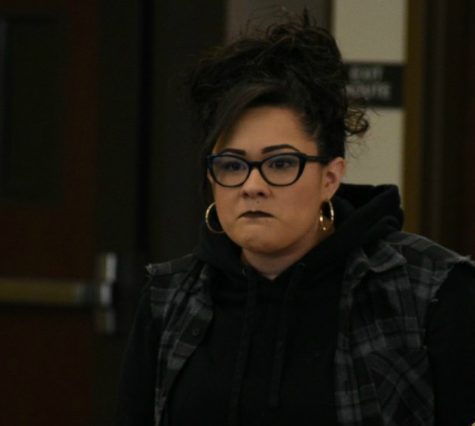
Students are already suffering from food and housing insecurity, how will fee increases affect those who are already struggling to pay for food and rent?
According to Hutchinson, administrators have put considerable emphasis on Chico State’s efforts to combat food and housing insecurity.
“Chico State, I think, is leading the way in many ways with our food pantry and other ways that we’re moving around helping insecurity,” she said.
Additionally, as Chico States’ website on the fee adjustments states, percentages of each of the fees paid will be set aside for financial aid for qualified students, including 33 percent of the student learning fee. However, audience members have raised concerns about the adequacy of these funds and whether it’s enough to help students with financial struggles.
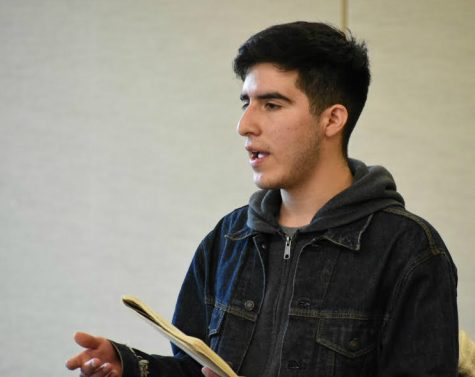
What if I am in favor of just one or two, but not all the fees?
Administrators have made it clear that each of the fees are being considered individually and that no decision has been made yet on the proposed fees. Hutchinson has the final say on the proposed increases but she has stated at nearly every meeting that she has yet to make a decision
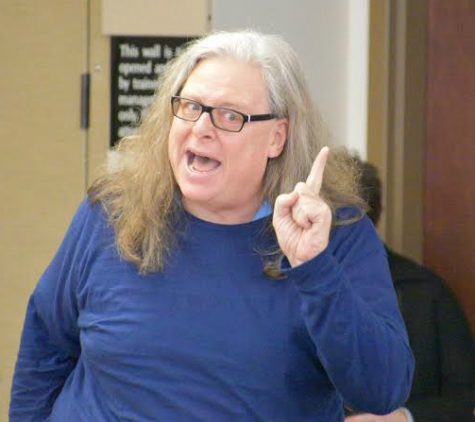
Why is this fee increase happening? What went wrong?
At every open forum a question of mismanagement has arised, a question that has been brought up by both students and faculty. The forum panel has dismissed any claims of mismanagement of student fees by either current or former administrators. Panel members are rather stressing that dwindling reserves are the main reason for the proposed student fee increases.
“There is no mismanagement and I want to be clear,” Hutchinson said at the March 1 open forum. “Any administrator who sits in this role has to make difficult decisions and those decisions were made with integrity, they were made to not increase student fees for as long as possible, which is why we’re here today.”
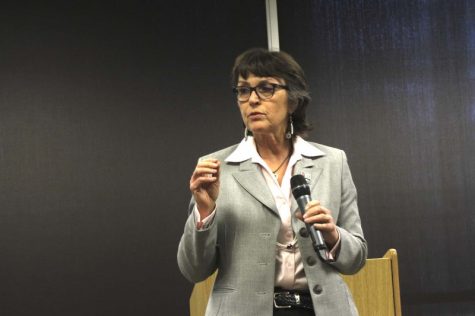
Will the athletics program be shut down if the fee increases do not pass?
No, the athletics program will still exist if the fee increases aren’t passed, but they will be severely cut back according to the forum panel members.
Athletics Director Anita Barker said that the Student Athletics Fee is needed because the current athletes fee is based on an outdated model that was put into place 20 years ago.
“This year we’re in a deficit,” Barker said. “Is that a mismanagement of funds? It’s not. It’s a result of a fee that hasn’t been adjusted since 1998 and we have frugally crept along for all these years.”
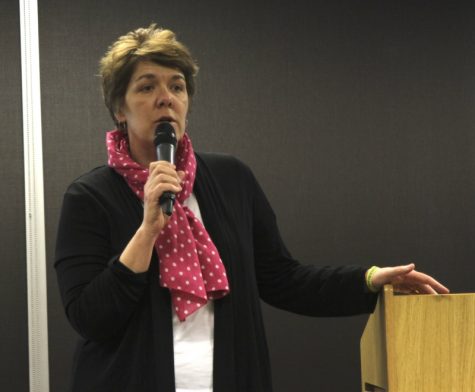
“If this (athletic) fee is not adjusted and if we are not successful in the fee change then the university is going to have to make a decision of what to do with the athletic program because our base funding will be gone,” Barker said. “We are at a point that without a fee adjustment, a tough decision is going to have to be made. That’s not a scare tactic, that’s a reality.”
Will the Student Health Center close down if the fee increases do not pass?
No, the health center will continue to exist and serve students. However, according to the panel, if the Health Service Fee isn’t adjusted many health programs will be reduced and wait times will increase.
Interim Director of the Student Health Center Jill Cannaday warned audience members that if health service fee didn’t increase, students would probably have a limited amount of health center visits per semester.
“What happens if we don’t get the (health service) fee increase? Everything gets worse,” Cannaday said. “If we don’t get this fee increase, students will be limited to three visits per semester.”
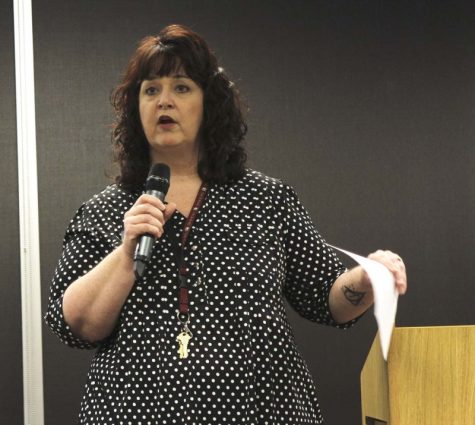
Cannaday, along with the other panel members spent most of their speech times discussing the specifics on what would happen if the fee increases were not implemented. Most, however, spent less than half their allotted speech times discussing what would happen if the fee increases were to pass.
Administrators explained that the potential fee increases would go toward things like salaries, athletes’ travel expenses, additional staffing, field trips and more learning resources. When asked to elaborate on these terms and how exactly the fee increase dollars would be spent, multiple panel members directed students to Chico State’s proposed fee increases web page for more specific information.
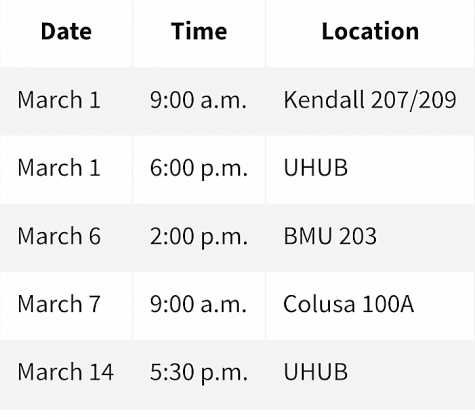
For those with questions or concerns about these potential fee increases, there is one more scheduled open forum on Wednesday from 5:30 to 7:30 p.m. in the UHUB.
Any students who can’t make this final forum can submit comments, questions and concerns online through the provide feedback tab on Chico State’s website.
Grayson Boyer and Alex Grant can be reached at [email protected] or @theorion_news on Twitter.



